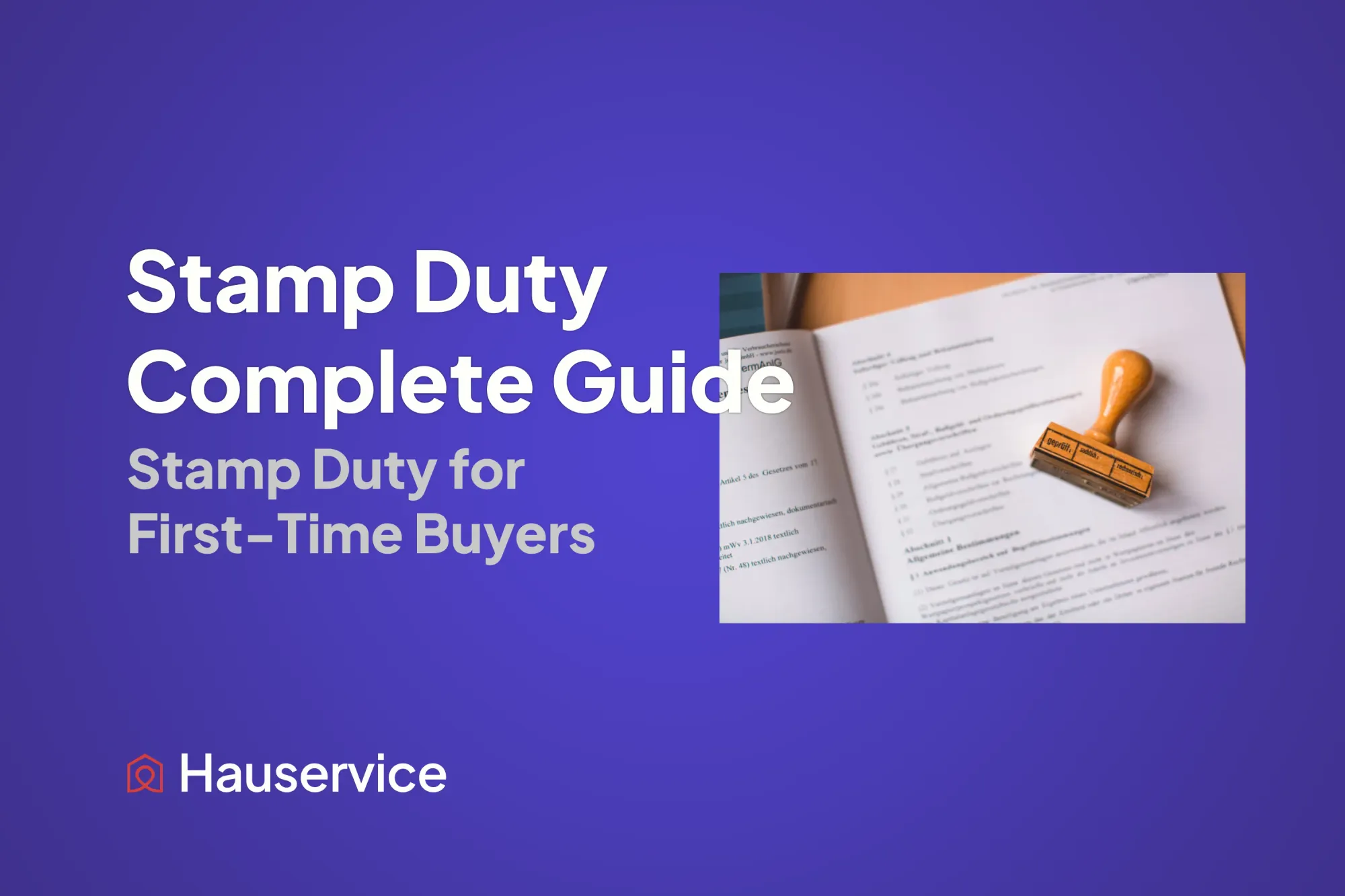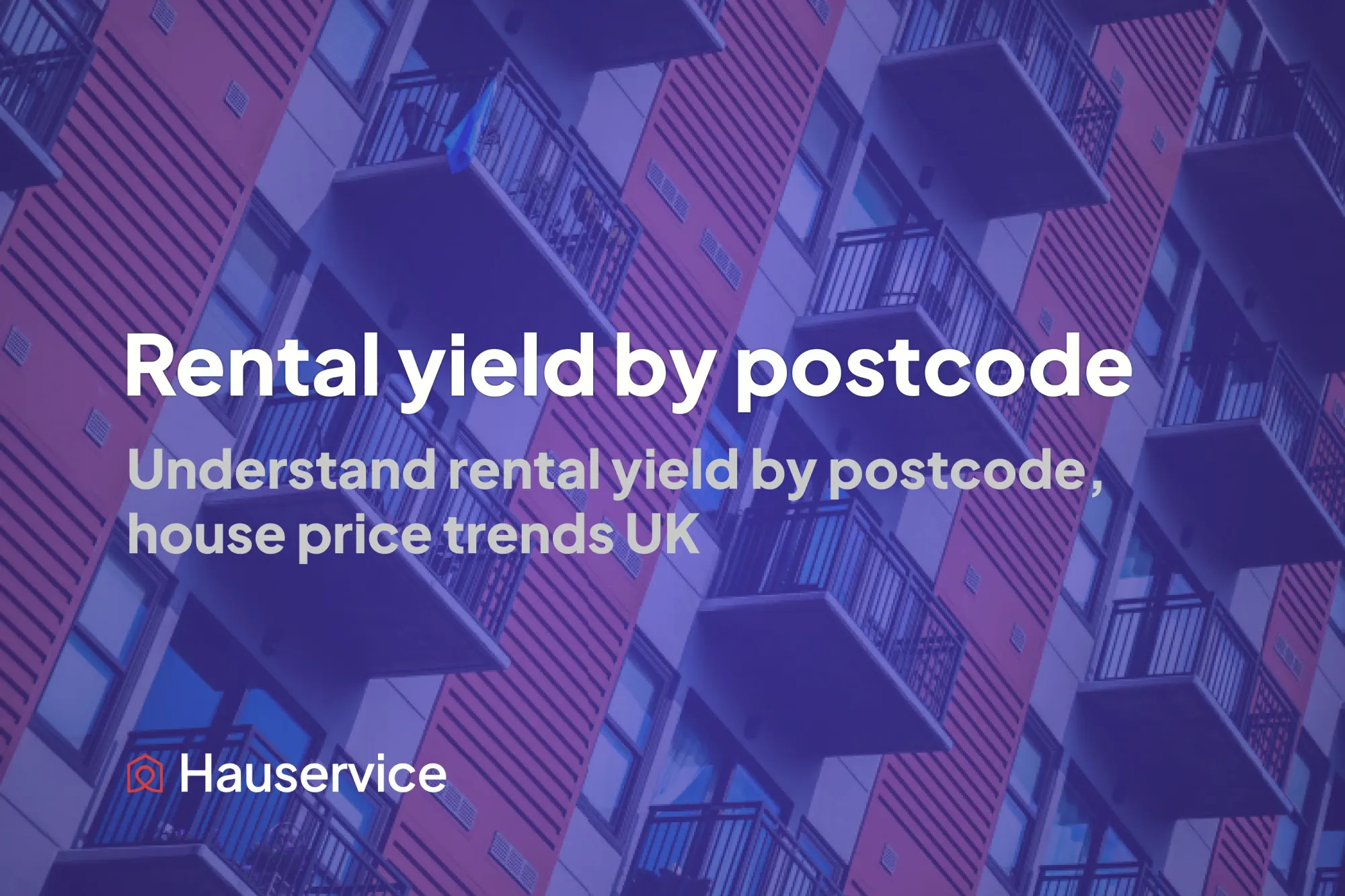Stamp Duty for First-Time Buyers in the UK: Your Complete 2025 Guide

Navigating the property market as a first-time buyer is challenging enough without the added complexity of stamp duty. Since 1 April 2025, first time buyers now pay stamp duty on a property's value over £300,000. They'll then pay 5% on the value between £300,001 and £500,000.
This comprehensive guide breaks down everything you need to know about stamp duty as a first-time buyer in 2025, helping you budget accurately for your property purchase.
What is Stamp Duty and Why Does it Matter?
Stamp Duty Land Tax (SDLT) is a government tax paid when purchasing property in England and Northern Ireland. Stamp Duty Land Tax (SDLT) is a one-off tax that must be paid when buying a UK property costing more than a certain threshold. The amount of SDLT you pay depends on the purchase price of the property and whether you have already owned a property.
For first-time buyers, understanding stamp duty is crucial because it can add thousands to your property purchase costs. The good news? The government offers relief specifically designed to help you get on the property ladder.
Major Changes in April 2025: What You Need to Know
Previously first-time buyers pay no stamp duty when buying a home worth £425,000. This threshold has now dropped to £300,000, meaning they will go from paying nothing to paying £6,250 on stamp duty.
This represents one of the most significant changes to first-time buyer relief in recent years.
Key Changes at a Glance:
- The SDLT 0% tax threshold for first-time buyers was reduced to £300,000 in April 2025
- The maximum purchase price for which First-Time Buyers Relief (a reduced stamp duty rate) can be claimed returned to £500,000, where it was previously £625,000
- Properties over £500,000 no longer qualify for any first-time buyer relief
Current Stamp Duty Rates for First-Time Buyers (2025)
Understanding the current rates is essential for budgeting your property purchase:
For First-Time Buyers:
- £0 - £300,000: 0% stamp duty
- £300,001 - £500,000: 5% stamp duty (on the portion above £300,000)
- Over £500,000: Standard rates apply (no first-time buyer relief)
If the purchase price of the property you are buying as a first-time buyer exceeds £500,000 then you won't get any buyer relief. Instead, you will pay the same stamp duty as someone buying a home for the second, third, etc. time.
| Current Rates (From April 2025) |
£0 - £300,000: 0% £300,001 - £500,000: 5% (on amount above £300,000) Over £500,000: No first-time buyer relief (standard rates apply) |
| Previous Rates (Before April 2025) |
£0 - £425,000: 0% £425,001 - £625,000: 5% Over £625,000: Standard rates |
Real-World Examples: How Much Will You Pay?
Let's break down some practical examples to help you understand the actual costs:
Example 1: £250,000 Property
- Stamp duty paid: £0
- You pay nothing as the property is below the £300,000 threshold
Example 2: £350,000 Property
- First £300,000: £0
- Next £50,000 at 5%: £2,500
- Total stamp duty: £2,500
Example 3: £400,000 Property
For example, a £400,000 property that wouldn't have met the threshold for paying any stamp duty before now incurs £5,000 in SDLT.
- First £300,000: £0
- Next £100,000 at 5%: £5,000
- Total stamp duty: £5,000
Example 4: £500,000 Property
On a property purchased for £500,000 the total stamp duty payable would be £10,000. From 1st April 2025, the initial stamp duty threshold is £300,000 with further relief available up to £500,000.
Regional Impact: Where First-Time Buyers Are Hit Hardest
The impact of these changes varies significantly across the UK:
London and South East
But in London, the average house is worth £531,000. If you're buying a home worth this much, you'll pay 5% Stamp Duty as a first-time buyer.
First-time buyers in these regions face the biggest challenges, with many properties exceeding the relief thresholds.
Statistics Show the Reality
The average house price for a first-time buyer in 2024 was £311,034, up 8% from the average first-time buyer house price of £288,136 in 2023. House prices for first-time buyers vary across UK regions, with the highest average price of £511,514 in London. The second highest prices for first-time buyers can be found in the South East of England, with the average house price at £367,974.

Who Qualifies as a First-Time Buyer?
Not everyone buying their first property qualifies for relief. Here are the key criteria:
You Qualify If:
- To qualify as a first-time buyer in the taxman's eyes you must never have owned, or had an interest in, a residential property in the UK or overseas. This includes both freehold and leasehold property. And to qualify for first time buyer stamp duty relief, the home must be your only or main residence.
- You're purchasing the property to live in (not as an investment)
- None of your buying partners have owned property before
You Don't Qualify If:
- If you have inherited a property, you are not considered a first time buyer. Since you own the house you inherited, you are no longer classed as a first-time buyer despite the fact you've never actually purchased a property.
- No, it does not matter where in the world you own a property. If you have owned a property overseas or anywhere in the UK, you will not qualify for first-time buyer stamp duty tax exemption.
- You're buying a buy-to-let property
| You Qualify If: |
• Never owned property in UK or overseas • Buying as your main residence • All buyers are first-time buyers (if joint purchase) |
| You Don't Qualify If: |
• Previously owned or inherited property • Buying as investment/buy-to-let • One buyer has owned property before |
Scotland and Wales: Different Rules Apply
The UK's devolved nations have their own property tax systems:
Scotland
If you are buying your first home in Scotland, then you'll pay no stamp duty (LBTT) if it is worth less than £175,000. First time buyer stamp duty rates in Scotland are applied as follows (Land and Buildings Transaction Tax applies)
Wales
Unfortunately, there is no first-time buyers' stamp duty relief available for first homes purchased in Wales. However, the general threshold is £225,000 for all buyers.
Smart Strategies to Minimize Your Stamp Duty Bill
1. Consider Your Timing
With the April 2025 changes now in effect, timing your purchase carefully is crucial. You have 14 days to file a Stamp Duty Land Tax (SDLT) return and pay any SDLT due. If you don't submit a return and pay the tax within 14 days, HMRC might charge you penalties and interest.
2. Joint Purchases Require Both to Be First-Time Buyers
No, to qualify for stamp duty relief, none of the buyers can have previously owned or inherited a residential property. This applies to both married and unmarried couples.
3. Factor Stamp Duty into Your Budget Early
Use online calculators to determine your exact liability and include this in your overall budget from the start.
How a Property Survey Can Save You Money
While stamp duty is unavoidable, you can protect your investment and potentially save money by getting a comprehensive property survey. The Hausreport offers a fast, AI-powered property survey that uncovers condition issues, price trends, and potential risks. Unlike traditional surveys that are slow and expensive, the Hausreport provides rapid insights that can help you negotiate a better price or avoid costly mistakes – potentially offsetting some of your stamp duty costs.
Looking Ahead: Market Trends for First-Time Buyers
The property market continues to evolve, with there has been an annual price rise of 3.7%, which makes the average property in the UK valued at £269,000. In England the June data shows, on average, house prices rose by 1.3% since May 2025. The annual price rise of 3.3% takes the average property value to £291,000.
There were 341,068 first-time buyers in the UK in 2024, up 19% from 287,060 first-time buyers in 2023. There were 341,068 first-time buyers in the UK in 2024, up 19% from 287,060 first-time buyers in 2023.
Despite the challenges, first-time buyers remain active in the market.
FAQs About First-Time Buyer Stamp Duty
Q: Do I need to pay stamp duty if I'm buying with a partner who owned property before? A: No, both buyers must qualify as first-time buyers to receive the relief.
Q: What if my property is exactly £300,000? A: You won't pay any stamp duty as the threshold is up to and including £300,000.
Q: Can I claim back stamp duty if I don't complete the purchase? A: Stamp duty is only paid upon completion, so if the sale falls through before completion, you won't have paid it.
Q: Does stamp duty apply to new build properties? A: Yes, the same rules apply whether you're buying a new build or existing property.
Making Your First Purchase Count
The stamp duty landscape for first-time buyers has become more challenging in 2025, but with proper planning and understanding, you can still make your property dreams a reality. Research by Leeds Building Society found that an additional 21% of first time buyers in England will now face paying Stamp Duty.
Remember to:
- Calculate your stamp duty liability early
- Factor it into your overall budget
- Consider properties just below threshold points to minimize tax
- Get a comprehensive property survey to protect your investment
- Seek professional advice if you're unsure about your first-time buyer status
The journey to homeownership may have additional hurdles, but with the right knowledge and preparation, you can navigate the stamp duty system successfully and secure your first home.




